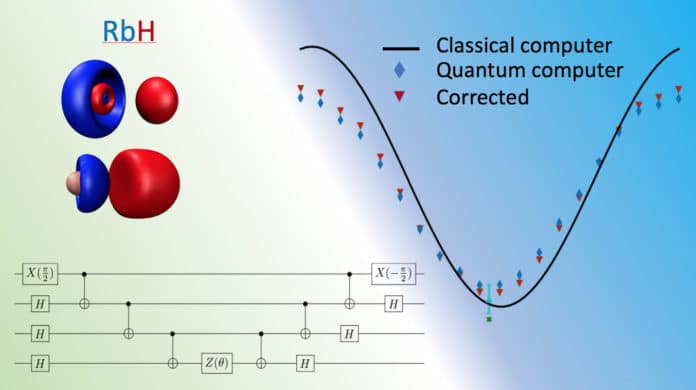Quantum systems can be exponentially more powerful than today’s leading classical computing systems and guarantee to alter examine in materials, chemistry, high-vitality physics, and over the scientific spectrum.
But since these systems are in their relative infancy, understanding what applications are appropriate to their novel designs is architectures as a significant field of research.
In a new study, scientists at the Department of Energy’s Oak Ridge National Laboratory have come up with a quantum chemistry simulation benchmark to evaluate the performance of quantum devices and guide the development of applications for future quantum computers.
ORNL’s Raphael Pooser, the principal investigator of the Quantum Testbed Pathfinder project, said, “We are currently running fairly simple scientific problems that represent the sort of problems we believe these systems will help us to solve in the future. These benchmarks give us an idea of how future quantum systems will perform when tackling similar, though exponentially more complex, simulations.”
Scientists calculated the bound state energy of alkali hydride molecules on 20-qubit IBM Tokyo and 16-qubit Rigetti Aspen processors. These molecules are simple, and their energies well understood, enabling them to test the presence of the quantum computer successfully.
By tuning the quantum computer as a function of a few parameters, scientists quantified these molecules’ bound states with chemical accuracy, which was obtained using simulations on a classical computer. Of equal importance is the fact that the quantum calculations also included systematic error mitigation, illuminating the shortcomings in current quantum hardware.
The systematic error occurs when the ‘noise’ inherent in current quantum architectures affects their activity since quantum computers are incredibly delicate (for example, the qubits utilized by the ORNL group are kept in a dilution refrigerator at around 20 millikelvin (or more than – 450 degrees Fahrenheit), temperatures and vibrations from their surrounding environments can make insecurities that lose their accuracy, for example, such noise may cause a qubit to turn 21 degrees rather than the ideal 20, enormously influencing a calculation’s outcome.
Pooser said, “This new benchmark characterizes the ‘mixed state,’ or how the environment and machine interact very well. This work is a critical step toward a universal benchmark to measure the performance of quantum computers, much like the LINPACK metric is used to judge the fastest classical computers in the world.”
While the calculations were reasonably simple compared to what is possible on leading classical systems such as ORNL’s Summit, currently ranked as the world’s most powerful computer, quantum chemistry, along with nuclear physics and quantum field theory, is considered a quantum “killer app.” In other words, it is believed that as they evolve, quantum computers will be able to more accurately and more efficiently perform a broad swathe of chemistry-related calculations better than any classical computer currently in operation, including Summit.
ORNL quantum chemist Jacek Jakowski said, “The current benchmark is the first step towards a comprehensive suite of benchmarks and metrics that govern the performance of quantum processors for different science domains. We expect it to evolve with time as the quantum computing hardware improves. ORNL’s vast expertise in domain sciences, computer science, and high-performance computing make it the perfect venue for the creation of this benchmark suite.”
Scientists are now planning for paradigm-shifting platforms such as quantum for more than a decade via dedicated research programs in quantum computing, networking, sensing, and quantum materials. These endeavors expect to quicken the comprehension of how near- erm quantum resources can help handle the present most overwhelming scientific challenges and bolster the as of late reported National Quantum Initiative, a federal effort to guarantee American administration in quantum sciences, particularly computing.
Pooser said, “This project helps DOE better understand what will work and what won’t work as they forge ahead in their mission to realize the potential of quantum computing in solving today’s biggest science and national security challenges.”
The study is published in the journal npj Quantum Information.
